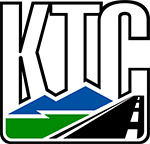
Wendell H. Ford
Wendell Ford’s political career spanned a third of a century in elective office. He began as a Kentucky state senator in 1965 and was elected lieutenant governor in 1967. Four years later, he became the commonwealth’s 53rd Governor (1971-1974). As Governor, Ford stopped diversion of Road Fund revenues to other government agencies. At the time, the amount diverted was $15 million which on a percentage basis was more than the $67 million now being diverted to other agencies.
Ford served in the US Senate from December 28, 1974 to January 3, 1999. At the time of his retirement, Ford was Assistant Democratic leader, a post to which he was first elected in 1990. When he retired, Senator Ford was 12th out of 100 members in overall seniority and ranked 7th among Democrats. On November 14, 1996, Ford broke Alben W. Barkly’s record for the longest consecutive service in the US Senate as a Senator from the Commonwealth.
During his years in the Senate, Ford was a staunch supporter of the economic interests of Kentucky and was a national leader in energy, aviation, federal-election reform, and other issues. He shaped such legislation as the National Voter Registration Act, the Federal Aviation Administration Authorization Act of 1994, the Family and Medical Leave Act, the National Energy Security Act of 1992, the Aviation Safety and Capacity Act of 1990, the Airport and Airways Capacity Expansion Act of 1987, the Age Discrimination in Employment Act Amendments of 1986, the Tobacco Reform Act of 1985, and Energy Security Act of 1977 and the Surface Mining and Reclamation Act of 1977.
He took the lead in many other legislative initiatives, including a long and persistent drive to adopt a two-year
budget tool to improve the federal government’s troubleplagued budget-making process.
Ford worked successfully to increase federal support for clean-coal technologies to strengthen the coal industry, lessen the nation’s dependence on foreign oil and protect the environment.
As the chairman or ranking member of the Aviation Subcommittee of the Senate Committee on Commerce, Science and Transportation, Ford was instrumental in expanding airport-improvement programs and took a leading role in addressing airport noise policy, aging aircraft, pilot education, and other critical aviation issues.
Ford gained federal support for the Advanced Science and Technology Commercialization Center and the International Trade Development Center at the University of Kentucky. He secured authorization for Kentucky communities to band together to float $370 million in community improvement bond issues. As a believer in strong defense, Ford played a leading role in protecting the National Guard and military installations in the Commonwealth. He worked to improve the transportation infrastructure in Kentucky and open new export markets for Kentucky products. He was a cosponsor of legislation to ensure Highway Trust Fund donor states got a more fair return of highway user fees and to utilize the Trust Fund for its intended purpose.
While serving as chairman or ranking member of the US Senate Aviation Subcommittee from 1985 until his retirement, Ford was responsible for more of the state’s airport development than any other Kentuckian.
